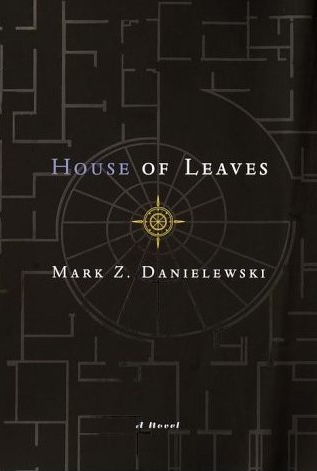 Last year I read something online called “Ted’s Caving Page”. It was a short story about a spelunker exploring a cave, and I found it very, very frightening. Partly because of the story, but also because of how it was presented. It was long, unedited, and written in an rambly hands-in-overall-pockets style that took me off-guard. It was (deliberately?) amateurish, but that made it seem real.
Last year I read something online called “Ted’s Caving Page”. It was a short story about a spelunker exploring a cave, and I found it very, very frightening. Partly because of the story, but also because of how it was presented. It was long, unedited, and written in an rambly hands-in-overall-pockets style that took me off-guard. It was (deliberately?) amateurish, but that made it seem real.
If Ted’s Caving Page had come in a shiny new paperback with “CRITICALLY ACCLAIMED” on the front cover and “‘THE GREATEST SCARY STORY IN 10 YEARS … WOW’ – Ramsey Campbell” on the back…I wouldn’t have enjoyed it as much, or so I suspect. It would have seemed crude, primitive, unworthy of its heraldry. And yet, hosted on a cheap Angelfire site, the story worked. It was a success not because of what it was but because of how it was. It’s popular to pretend that art is self-contained and is not affected by anything outside itself. In truth, art can be enhanced or destroyed by nothing more than its packaging.
House of Leaves by Mark Danielewski compares to Ted’s Caving Page in a number of ways, but foremost is that the presentation is an enmeshed part of the story. It is a story-in-a-story about a man who, apartment-hunting, finds an abandoned manuscript about a very odd house. The house is the real story, but it’s one we’re told in between periods of commentary from our narrator. He talks about his love life, and his mother, and the darkness that seems to be gathering about him with each waking moment.
The manuscript is about a man called Navidson, who owns a peculiar house. Its walls, measured from inside, have a greater perimeter than when measured from outside. Rooms appear and disappear. Soon, a vast chamber appears, and Navidson begins to explore and document it using an Arriflex camera. At the beginning, the house seems like a metaphor for Navidson’s madness, but soon others are capture. If the house is nothing but a noumena of Navidson, then he is a danger to everyone around him, most of all his wife and children.
The narrator is unreliable. The book is unreliable. Some pages have only a single word. Some of them must be read by holding the book up to a mirror. There are scholarly references to various real and fictional articles, and there are fake (but very convincing) interviews with folk such as Stephen King and Anne Rice about the nature of the document. Sometimes what you’re reading doesn’t make sense, but it works as window dressing, creating the impression that you are reading things that actually happened. Little details, like the main character’s, relationship with his mother seem simultaneously irrelevant and hugely important.
Although the story is as gripping as anything I’ve read, critical pieces of information are ambiguous or missing, even at the end. This is not a book of answers, but a book of questions. You have to work for House of Leaves‘ very occasional revelations, which makes them seem all the more worthwhile. The cryptic, byzantine nature of the book invites the reader’s exploration…rather like a certain house.
This book creates a unique and special atmosphere. It’s as structured and planned as any novel ever written, and it does seem artificial in some ways, but that makes me think of The Blair Witch Project. The first five minutes, all you can notice is the shaky camera. By the end of the movie, you’ve forgotten that things like cameras even exist.
No Comments »
Comments are moderated and may take up to 24 hours to appear.
No comments yet.
